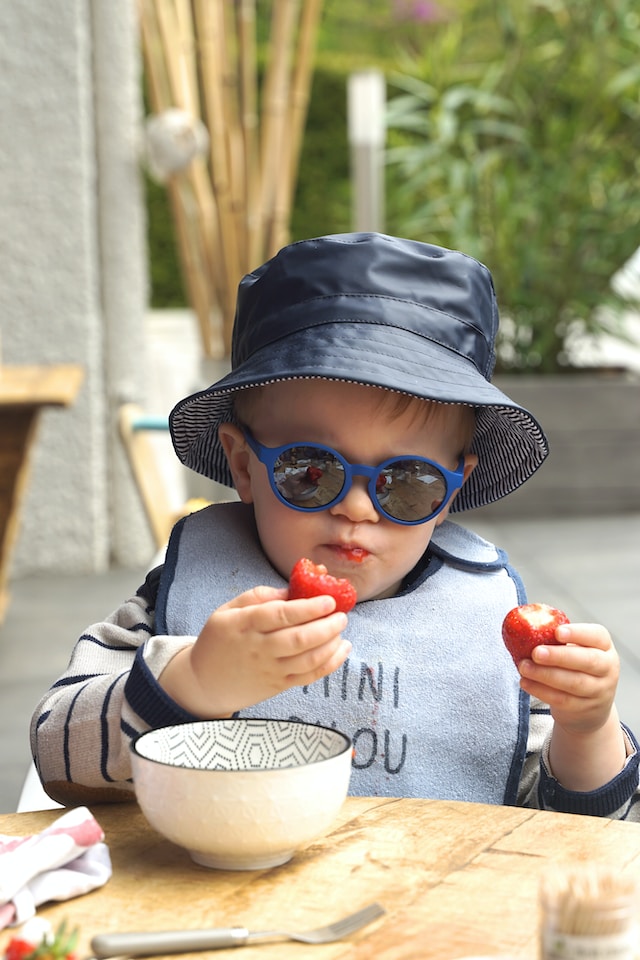4.3 Toddler Nutritional Practices
Toddlers are in a unique position of transitioning between familiar infant feeding routines to more independent feeding practices. Toddlers enjoy more autonomy over how, when and what they will eat. Toddler classrooms are generally equipped with small child-sized tables and chairs to support the children as they become more independent. Some younger toddlers may still drink from a bottle or be breastfed. The infant feeding practices discussed should be embedded into toddler programs to ensure a smooth transition for new toddlers who are entering from an infant program. Often, the toddler classroom may be the first learning space for a young child who has only been familiar with a home caregiving environment. Many infants are already familiar with using blunt-edge utensils, while some young toddlers may have their first introduction to using utensils. Toddlers like to eat finger foods while they are learning to use utensils. Finger foods help support toddlers in gaining their autonomy with feeding practices. It continues to be important for educators to collaborate with families and dietary planners to establish consistent feeding practices between early years settings and home.
Toddler meal times are served in a family-style setting with educators sitting with the children, modelling healthy eating practices and engaging children in conversation. These snack and meal routines are great opportunities to extend learning through conversation, role modelling, and providing a calm and nurturing space for children to feel welcome. Educators may engage families in sharing cultural feeding practices and traditions that can be embedded into the classroom to ensure a sense of belonging for the children accessing the space.
Children should be encouraged to sit while they are eating to prevent choking and injuries. Educators sitting with children, modelling healthy eating practices, provides the toddlers with a great learning opportunity to understand what encompasses healthy eating practices. Enjoying social interactions and conversations allows children to develop social and literacy skills during meal times. The pace at snack and meal times should be unhurried and enjoyable. Children may want to participate in setting the table, in serving themselves, by cleaning up dirty dishes, and by recycling food waste. Methods to support children’s understanding of where food comes from will be discussed later in the chapter.


